
Winifred Jacqueline Fraser BissetLdH is a British actress. She began her film career in 1965 and first came to prominence in 1968 with roles in The Detective, Bullitt, and The Sweet Ride, for which she received a Golden Globe nomination as Most Promising Newcomer. In the 1970s, she starred in Airport (1970), The Mephisto Waltz (1971), Day for Night (1973), which won the Academy Award for Best Foreign Language Film, Le Magnifique (1973), Murder on the Orient Express (1974), St. Ives (1976), The Deep (1977), The Greek Tycoon (1978) and Who Is Killing the Great Chefs of Europe? (1978), which earned her a Golden Globe nomination as Best Actress – Motion Picture Comedy or Musical.

Days of Wine and Roses is a 1962 American drama film directed by Blake Edwards with a screenplay by JP Miller adapted from his own 1958 Playhouse 90 teleplay of the same name. The film was produced by Martin Manulis, with music by Henry Mancini, and features Jack Lemmon, Lee Remick, Charles Bickford and Jack Klugman. The film depicts the downward spiral of two average Americans who succumb to alcoholism and attempt to deal with their problems.
The year 1968 in film involved some significant events, with the release of Stanley Kubrick's 2001: A Space Odyssey, as well as two highly successful musical films, Funny Girl and Oliver!, the former earning Barbra Streisand the Academy Award for Best Actress and the latter winning both the Best Picture and Best Director awards.

Maria de Lourdes Villiers "Mia" Farrow is an American actress. She first gained notice for her role as Allison MacKenzie in the television soap opera Peyton Place and gained further recognition for her subsequent short-lived marriage to Frank Sinatra. An early film role, as Rosemary in Roman Polanski's Rosemary's Baby (1968), saw her nominated for a BAFTA Award and a Golden Globe Award for Best Actress. She went on to appear in several films throughout the 1970s, such as Follow Me! (1972), The Great Gatsby (1974), and Death on the Nile (1978). Her younger sister is Prudence Farrow.
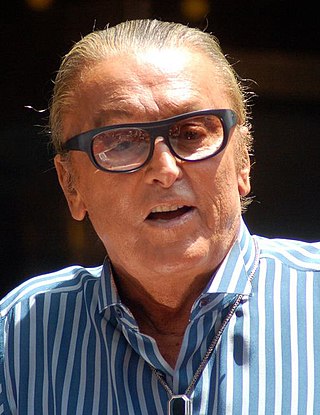
Robert Evans was an American film producer, studio executive, and actor, best known for his work on Rosemary's Baby (1968), Love Story (1970), The Godfather (1972), and Chinatown (1974).

Michael Sarrazin was a Canadian actor. His most notable film was They Shoot Horses, Don't They?.
"Brian Sings and Swings" is the 19th episode of the fourth season and the 69th episode of Family Guy. The episode was first broadcast on January 8, 2006. Brian meets Frank Sinatra Jr. and begins to perform on stage with him, and they are shortly joined by Stewie. Meanwhile, Meg pretends to be a lesbian after being offered a chance to join the Lesbian Alliance Club at her school.

Nothing Lasts Forever is a 1979 action thriller novel by American author Roderick Thorp, a sequel to his 1966 novel The Detective. The novel is mostly known through its 1988 film adaptation Die Hard, starring Bruce Willis. In 2012, the book was brought back into print and released as an ebook for the 24th anniversary of the film.

Bert Freed was an American character actor, voice-over actor, and the first actor to portray Detective Columbo.
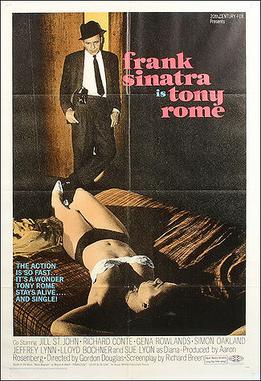
Tony Rome is a 1967 American neo-noir mystery crime thriller film directed by Gordon Douglas and starring Frank Sinatra in the title role, alongside Jill St. John, Sue Lyon and Gena Rowlands. It was adapted from Marvin H. Albert's novel Miami Mayhem.

Patrick Moody Williams was an American composer, arranger, and conductor who worked in many genres of music, and in film and television.

Resurrection is a 1999 horror-thriller film directed by Russell Mulcahy and starring Christopher Lambert, Leland Orser and Robert Joy. David Cronenberg appears in a cameo as a priest. Lambert co-wrote the story for the film with Brad Mirman, who also wrote the screenplay.
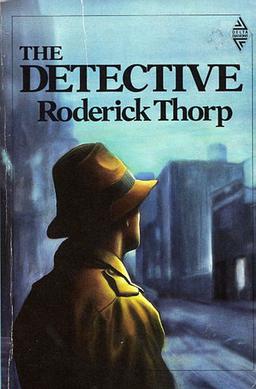
The Detective is a thriller/detective novel by American author Roderick Thorp, first published hardcover in 1966. It was made into the 1968 movie of the same name, starring Frank Sinatra, as Detective Joe Leland. Billed as "an adult look at police life", The Detective went on to become one of the highest-grossing films of 1968 and one of the strongest box-office hits of Sinatra's acting career.
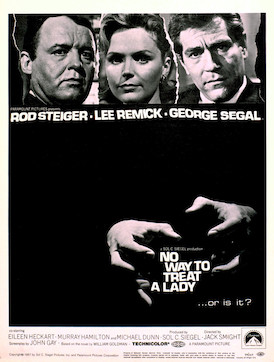
No Way to Treat a Lady is a 1968 American psychological thriller film with elements of black comedy, directed by Jack Smight, and starring Rod Steiger, Lee Remick, George Segal, and Eileen Heckart. Adapted by John Gay from William Goldman's 1964 novel of the same name, it follows a serial killer in New York City who impersonates various characters in order to gain the trust of women before murdering them.
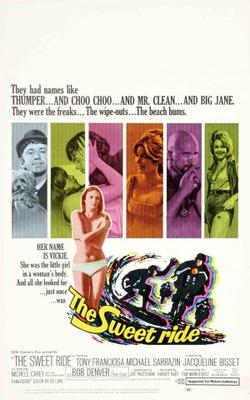
The Sweet Ride is a 1968 American drama film with a few surfer/biker exploitation film elements. It stars Tony Franciosa, Michael Sarrazin and Jacqueline Bisset in an early starring role. The film also features Bob Denver in the role of Choo-Choo, a Beatnik piano-playing draft dodger. Sarrazin and Bisset were nominated for the Golden Globe Award for Most Promising Newcomer, Male and Female respectively.

St. Ives is a 1976 American crime thriller film directed by J. Lee Thompson and starring Charles Bronson, John Houseman, Jacqueline Bisset, and Maximilian Schell.

America's Prince: The John F. Kennedy Jr. Story is a 2003 20th Century Fox television film. It is a biographical film about John F. Kennedy Jr. and based on Christopher Andersen's 2000 bestseller, The Day John Died. It was directed by Eric Laneuville and stars Kristoffer Polaha, Portia de Rossi and Jacqueline Bisset in principal roles. It premiered on TBS on 12 January 2003.
Rickey William Kelman is a former child and young adult actor who appeared in film and on television from 1954 to 1974. He had supporting roles in two single-season situation comedies, The Dennis O'Keefe Show (1959-1960) on CBS and Our Man Higgins (1962-1963) on ABC.
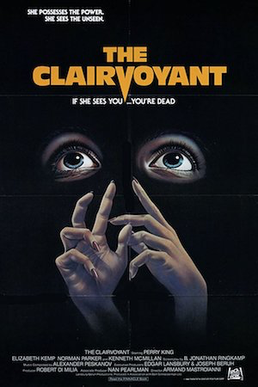
The Clairvoyant is a 1982 American psychological horror film directed by Armand Mastroianni and starring Perry King, Norman Parker, and Elizabeth Kemp. The plot follows a New York City detective and his friend who pursue a mysterious "handcuff killer" with the aid of an artist who sees—and draws—the killer's crimes before they are committed.

















